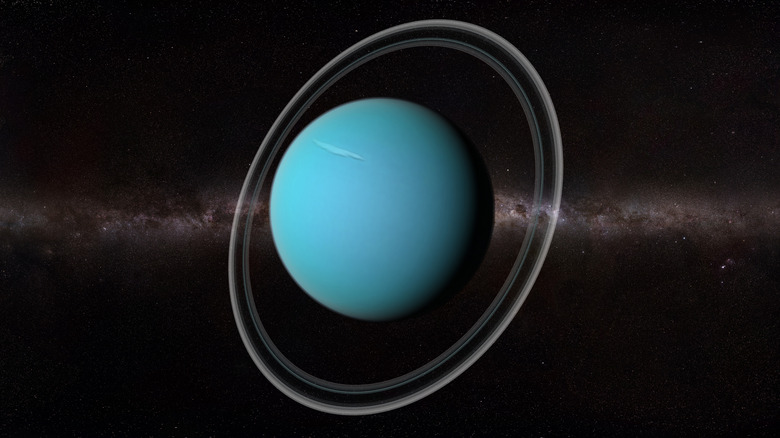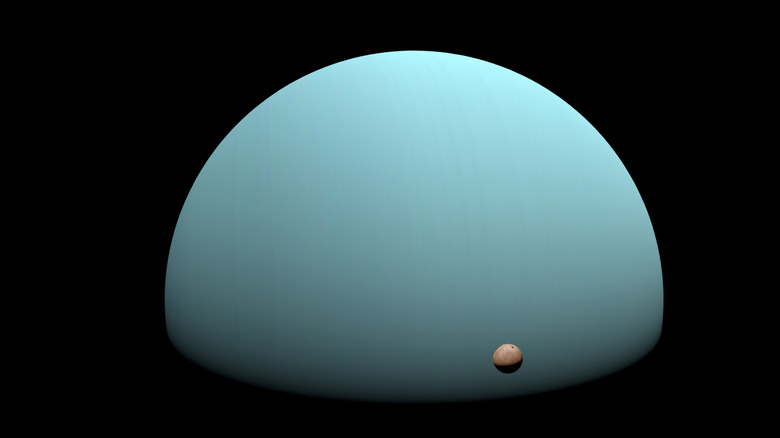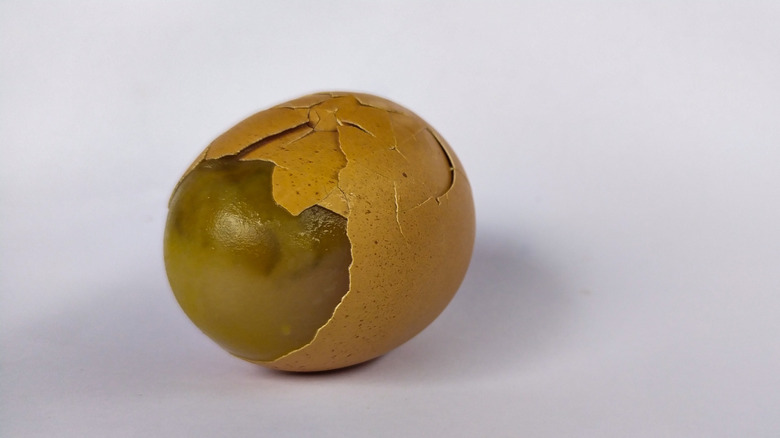The Smelly Truth About Uranus
To the delight of third grade humorists everywhere, scientists have proven that Uranus smells bad. The seventh planet from the sun has many claims to fame: Its axial tilt of 98 degrees is the most extreme in the solar system, essentially turning the planet sideways, and it also ranks absolute last on the order of planets from hottest to coldest, with temperatures that drop below -300 degrees Fahrenheit. However, Uranus tends to be overshadowed by the chuckles that often accompany its name, a fact that won't be helped by the revelation that it might also be the stinkiest planet of them all.
The Uranian atmosphere is characterized by heavy cloud cover, which has long been a point of interest for scientists, who debated what exactly these clouds were composed of. Answers were finally provided in a 2018 study published in the journal Nature Astronomy, which demonstrated that the cloud deck of Uranus is made up of hydrogen sulfide, the same odiferous gas that makes rotten eggs smell so awful.
The study in question relied upon the Near-Infrared Integral Field Spectrometer (NIFS), part of the Gemini North telescope located on Mauna Kea on the island of Hawaii. The NIFS creates 3D images based on waves in the near-infrared region of the electromagnetic spectrum. This technology has not only allowed us to determine the smelly nature of Uranus, but other important facts about its atmosphere as well.
The makeup of Uranus' atmosphere
Hydrogen sulfide clouds only account for a small portion of the Uranian atmosphere. The primary elements of Uranus are hydrogen and helium. These elements dominate the atmosphere, albeit not the rocky interior of the planet. Methane is the third-most prominent element in the atmosphere, and it contributes heavily to the planet's appearance. Since methane absorbs red light, it causes Uranus as a whole to appear blue to our eyes. For most of human history, that was all we could observe of the seventh planet — a completely blue orb — but as imaging technologies have improved, we began to see distinct cloud patterns in the atmosphere.
Not only are Uranus's clouds made of noxious hydrogen sulfide, but they're also traveling at violent speeds. Most clouds on Earth lumber through the sky at a rate of 30 to 40 miles, but clouds on Uranus have been observed traveling on winds as fast as 560 miles per hour. It appears that the planet also undergoes violent storms periodically, but the exact forces behind this are still a mystery to scientists. Some observations have suggested that due to its extreme tilt and distance from the sun, most weather on Uranus is driven by heat from the planet's core rather than from the sun, as we experience on Earth.
What is hydrogen sulfide?
The stench of Uranus is caused by the fact that its clouds are made of hydrogen sulfide, but what exactly is this stuff? Here on Earth, hydrogen sulfide presents as a colorless gas, but it makes its presence known through its aggressive odor. It is sometimes colloquially referred to as "swamp gas" or "sewer gas" because hydrogen sulfide typically forms in areas with stagnant water and poor oxygen circulation, such as swamps and sewer pipes. The gas is emitted as a byproduct of bacteria breaking down dead plant and animal material.
Hydrogen sulfide is also notorious as the cause of rotten egg smell. This happens because eggs contain some amount of carbonic acid inside them, which slowly seeps out of the pores in the shell over time. This causes the inside of the egg to become more alkaline (basic), which in turn causes sulfur and hydrogen in the egg to start reacting with each other. The product of this reaction is the noxious hydrogen sulfide that can make your kitchen unbearably stinky.
That same stuff seeping out of rotten eggs is condensed in the clouds of Uranus, which presumably make the whole planet stink to high heaven. If you were ever to visit Uranus, you wouldn't have to worry about putting up with the stench, though. Between the planet's -300 degree Fahrenheit weather and lack of atmospheric oxygen, you'd be dead the instant you arrived there.


